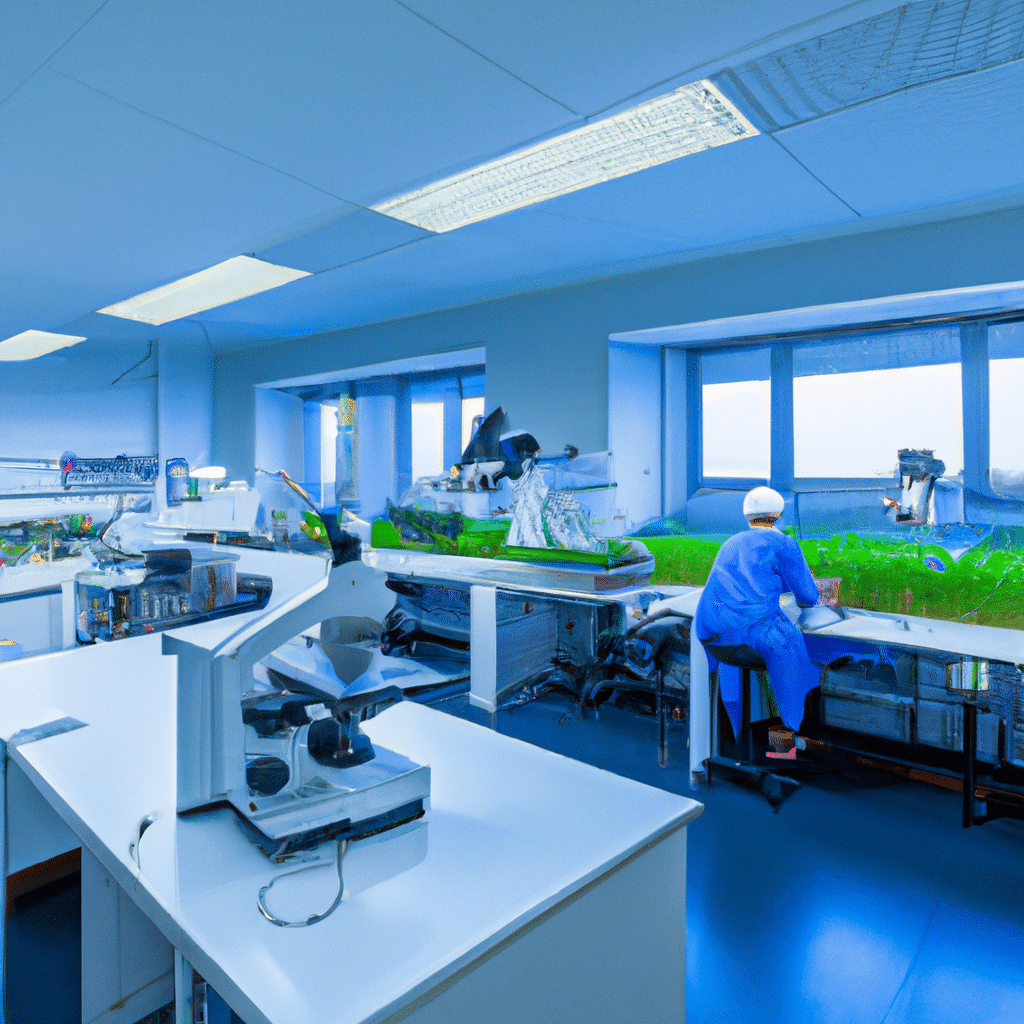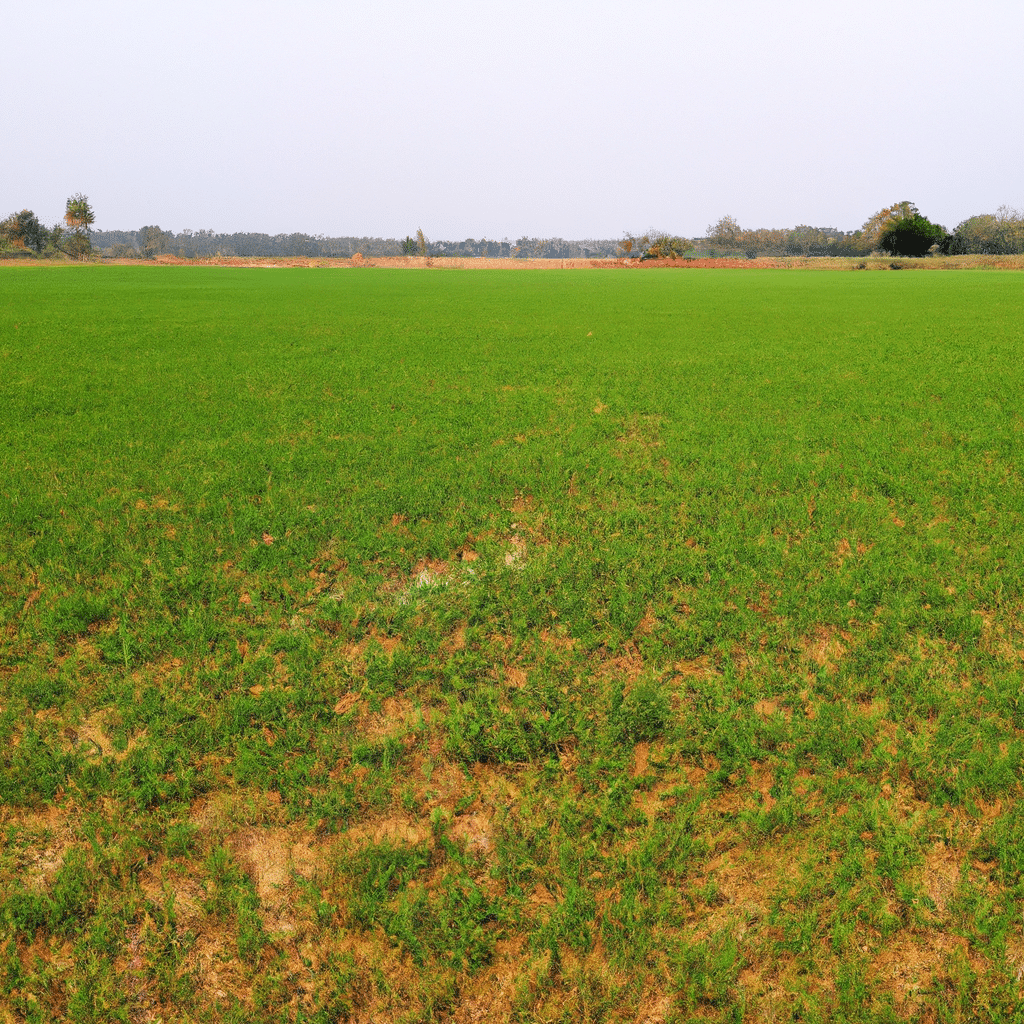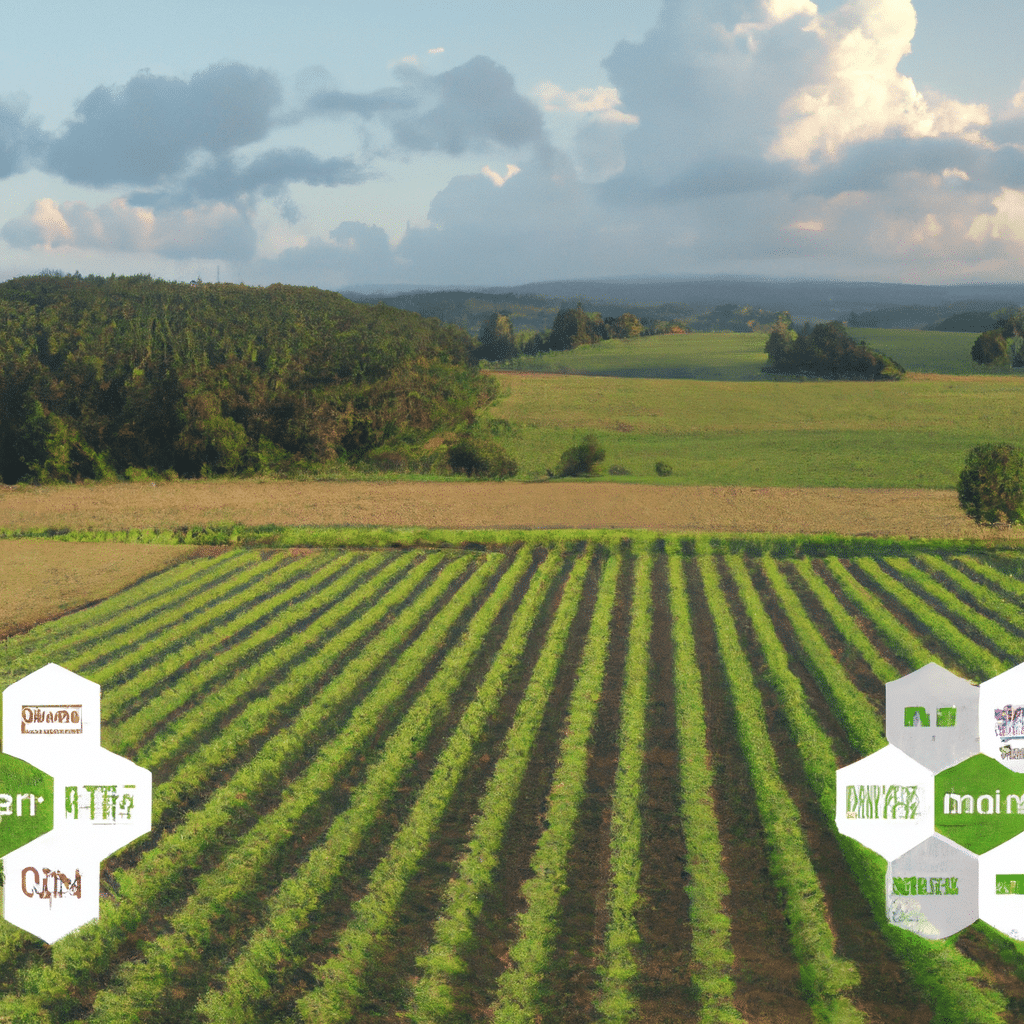In recent years, genetic engineering has emerged as a revolutionary technology with the potential to transform the field of agriculture. By manipulating the genetic makeup of plants and animals, scientists can now create improved varieties that offer higher yields, enhanced nutritional content, and increased resistance to pests and diseases. In this article, we will delve into the fascinating world of genetic engineering in agriculture, exploring its various applications, benefits, and potential drawbacks. Join us as we embark on this journey from the lab to the field, uncovering the vast potential that genetic engineering holds for the future of agriculture.
The Basics of Genetic Engineering
Genetic engineering, also known as genetic modification or biotechnology, involves the alteration of an organism’s genetic material using advanced scientific techniques. This process allows scientists to introduce specific genes into the DNA of an organism, thereby enabling the expression of desired traits. In the context of agriculture, genetic engineering primarily focuses on modifying crops and livestock to improve their characteristics.
Crop Genetic Engineering
Crop genetic engineering aims to enhance agricultural productivity and sustainability by introducing desirable traits into plants. This can include traits such as increased yield, improved nutritional content, and resistance to pests, diseases, or environmental stresses. Through genetic engineering, scientists can manipulate the plant’s DNA to incorporate genes from other organisms, providing them with advantageous traits that they would not naturally possess.
Livestock Genetic Engineering
Similar to crop genetic engineering, livestock genetic engineering involves modifying the DNA of animals to improve their traits. This can include traits like increased meat or milk production, enhanced disease resistance, or improved feed conversion efficiency. By introducing specific genes into the animal’s genome, scientists can create animals with desired traits that benefit both producers and consumers.
The Applications of Genetic Engineering in Agriculture
The applications of genetic engineering in agriculture are vast and diverse. Let’s explore some of the most notable areas where this technology is making an impact.
Crop Improvement
Genetic engineering allows scientists to develop crops that are more resistant to pests, diseases, and environmental factors. For example, by introducing genes from naturally pest-resistant organisms into crops, scientists can create plants that can effectively defend themselves against harmful pests without the need for excessive pesticide use. This not only reduces the environmental impact but also improves food safety and reduces production costs for farmers.
Nutritional Enhancement
Genetic engineering also offers the potential to enhance the nutritional content of crops. Scientists can introduce genes that increase the production of essential vitamins, minerals, and other beneficial compounds in crops, thereby improving their nutritional value. This holds significant promise for combating malnutrition and improving public health, especially in regions where access to diverse and nutritious food is limited.
Disease Resistance
One of the major challenges faced by farmers worldwide is the threat of crop diseases. Genetic engineering provides a powerful tool to combat these diseases by creating plants with increased resistance. By introducing genes that produce disease-fighting proteins or enzymes, scientists can help crops withstand the attack of pathogens, reducing yield losses and ensuring food security.
Environmental Sustainability
Genetic engineering has the potential to contribute to environmental sustainability in agriculture. By developing crops that are more resilient to extreme weather conditions, such as drought or salinity, genetic engineering can help mitigate the negative impacts of climate change on agricultural productivity. Additionally, genetically engineered crops can also reduce the need for chemical inputs like pesticides and fertilizers, minimizing their environmental footprint.
The Benefits of Genetic Engineering in Agriculture
The adoption of genetic engineering in agriculture offers numerous benefits that can positively impact farmers, consumers, and the environment. Let’s explore some of these advantages in detail.
Increased Crop Yields
Genetic engineering allows scientists to create crops with enhanced yield potential. By introducing genes that regulate plant growth and development, scientists can promote increased biomass accumulation, leading to higher yields. This is particularly crucial in addressing the global challenge of feeding a rapidly growing population, ensuring food security, and reducing hunger.
Improved Crop Quality
Genetic engineering also enables the improvement of crop quality. By manipulating genes responsible for the synthesis of essential nutrients, scientists can create crops with enhanced nutritional content. This not only benefits consumers by providing healthier food options but also addresses specific nutritional deficiencies prevalent in certain regions.
Reduction in Chemical Inputs
Genetically engineered crops often exhibit increased resistance to pests and diseases, reducing the reliance on chemical pesticides and herbicides. This reduction in chemical inputs offers multiple benefits, including lower production costs for farmers, decreased environmental pollution, and improved safety for farmworkers and consumers.
Enhanced Food Safety
Genetic engineering can contribute to improved food safety by reducing the presence of harmful substances or toxins in crops. For instance, the introduction of genes that produce natural insecticides within the plant’s tissues can reduce the need for external chemical insecticides, minimizing the risk of pesticide residues in food.
Potential Drawbacks and Concerns
While genetic engineering holds immense promise for agriculture, it is crucial to acknowledge the potential drawbacks and address concerns associated with this technology.
Environmental Concerns
Critics argue that the release of genetically engineered organisms into the environment may have unintended ecological consequences. There are concerns about the potential for gene flow from genetically engineered crops to wild relatives, potentially leading to the development of invasive species or the loss of biodiversity. Careful risk assessment and regulatory oversight are essential to minimize these risks.
Social and Ethical Considerations
The use of genetic engineering in agriculture raises social and ethical concerns. Questions regarding ownership and control of genetically modified organisms (GMOs), intellectual property rights, and equitable access to the benefits of this technology need to be addressed to ensure fair and responsible implementation.
Consumer Acceptance and Labeling
Consumer acceptance of genetically modified foods varies across different regions and cultures. Transparency in labeling and clear communication regarding the safety and benefits of genetically engineered products are crucial to foster consumer trust and enable informed choices.
Conclusion
Genetic engineering is revolutionizing the field of agriculture, offering unprecedented opportunities to address the challenges of food security, environmental sustainability, and nutritional deficiencies. By harnessing the power of this technology, scientists can develop crops with improved yield potential, enhanced nutritional content, and increased resistance to pests and diseases. Despite certain concerns and challenges, genetic engineering holds tremendous potential to transform our agricultural systems for the better. As we continue to explore and harness the potential of genetic engineering, it is essential to prioritize responsible and sustainable practices to ensure a brighter future for agriculture and our planet.















